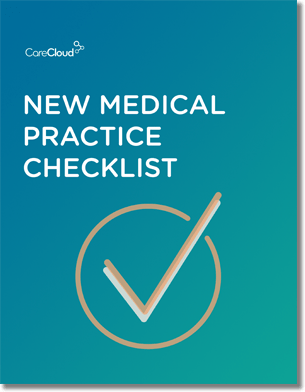There is an ongoing debate as to whether or not EHRs actually make patients safer. Sure, doctors using electronic health records boast fewer malpractice claims – Harvard Medical School reports that malpractice claims for physicians using EHRs tally in at one-sixth of the total of malpractice claims for physicians who haven’t yet implemented a system.
That’s fine and dandy, but what about your patients? Can you make them safer with your shiny new electronic health record system?
Accuracy
Both physicians and patients are becoming more aware of the benefits of having an electronic health record. Your patients have more access to their health information online, which gives you the luxury of having a second eye on the job.
Accuracy for your patient’s health data depends highly on positive attitudes, too. And when over 62% of physicians have a positive perception of using electronic means to document patient care, you’re headed in the right direction.
Those same physicians are seeing the results through improved accuracy and better patient care. The Journal of General Internal Medicine published that primary care physicians report EHR use improves the quality of care delivered to patients, including reducing medication errors, improved test follow-ups and better communication among providers.
Fewer Fatal Errors
Ever consider that one of the reasons why doctors with EHRs report fewer malpractice claims is because EHRs are just plain safer?
For one, if all health data for your patients is logged into a comprehensive EHR, you reduce the need to repeat risky tests and procedures.
Furthermore, a study by the Parkland Health and Hospital System in Dallas reports a 15 percent decrease in fatal hospitalizations and a 3 to 4% decrease in the mortality rate for facilities using EHRs. In other words, using an EHR decreases your patients’ chances of accidental injury or death.
More Time on Patients
The average doctor spends eight hours a week on paperwork, amounting to over 336,000 yearly hours spent on healthcare administration in the United States.
Using an electronic health record cuts your weekly administrative duties to about 1.66 hours worth of clerical time, leaving you with about 6.5 additional hours dedicated to patient care. And considering that you spend approximately 30-60 minutes a year conversing with each patient, every minute counts.
Prescription Confusion
An electronic health record will offer a more comprehensive view of a patient’s health. This benefits your practice by giving you the information you need to evaluate a patient’s current condition in the context of his or her health and treatment history.
This comprehensiveness will help flag potential conflicts. For instance, some EHRs incorporate warning systems to let you know whether you’re ordering medication for a patient that may interfere with another part of his/her regimen.
Electronic health records are as good as the information they contain and the clinician operating them. They may not be a panacea for all healthcare errors and cannot guarantee effective treatment, but they’re definitely a step in the right direction.
Do you operate your EHR in ways that make your patients safer?

Do you know what you need when setting up a new medical practice?


